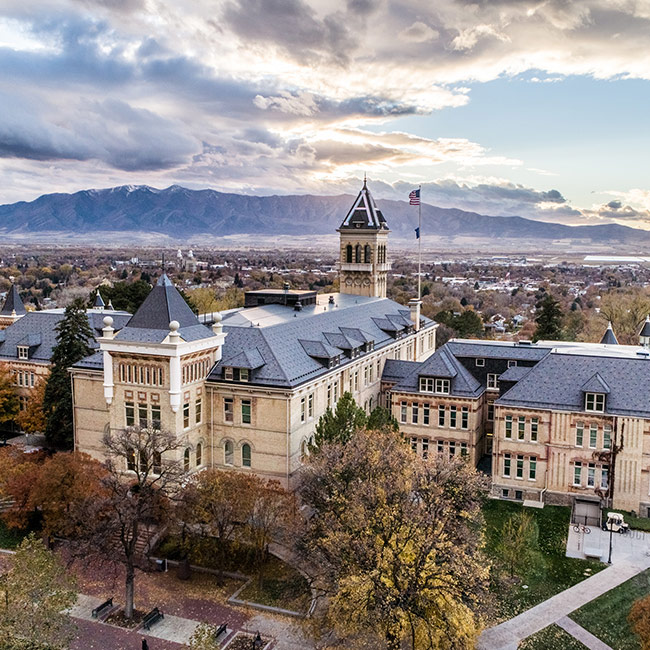About This Degree
The Industrial Mathematics Program teaches students modeling, simulation, mathematical and statistical analysis for careers in industry and mathematical sciences.
Students are prepared to work at a variety of government and industrial research jobs, teaching careers at community colleges as well as for entry to doctoral programs in applied mathematics or statistics.
What You Will Learn
Research project topics are suggested by industrial and scientific internship partners; recent research has developed Bayesian optimization tools for use in quantitative Enzyme-Linked ImmunoSorbant Assay (ELISA) to detect bio-pathogens, used path planning algorithms to govern robotic devices in complicated environments, or developed stochastic models to describe vegetation responses to changing arid environments.
Applicants are welcomed from any undergraduate technical major, including computer science, chemistry, engineering, math, physics and statistics.
Specialization:
Climate Adaptation Science (Industrial Mathematics MS):
The Climate Adaptation Science specialization provides students with experiences in actionable science through internship and research experiences. Program includes interdisciplinary research to identify adaptive responses to changing climate extremes and two-part internships with agency, NGO, and industry partners. In a first internship, students contribute to projects and learn the workplace cultures and science needs of the host. The internship experiences inform interdisciplinary climate adaptation research by student teams. In a second internship, students share science results and tools with the host organization and help put that science into action.ADVISING
At a Glance
College: College of Science
Department: Mathematics and Statistics Department
USU Locations:
- Logan campus
Program Requirements
Career And Outcomes
Career Opportunities
Graduates are employed as research-track faculty or lecturers at universities and colleges as well as governmental labs, industrial research centers, and private industry. We have had 95% success at employing Industrial Math graduates.
Job Outlook
USU Locations

LOGAN CAMPUS
Admission
Admission Requirements
Applicants are welcomed from any undergraduate technical major, including computer science, chemistry, engineering, math, physics and statistics. Undergraduate linear algebra, multivariate calculus and differential equations is prerequisite, as is computer programming experience.
Application to the Industrial MS program is through the USU School of Graduate Studies website.
Students must provide:
- GRE general scores (subject exams not required). We look for Quantitative scores above 60% and Verbal scores above 40%, but the application process is competitive so higher scores may be neccessary be competitive with other applicants.
- TOEFL or IELTS (unless you have earned a degree in an English-speaking country, e.g. US, UK or Canada). To qualify for a teaching assistantship in our department the total TOEFL iBT score must be 100 or above. IELTS must be at or above 6.5 for TA consideration.
- Transcripts of all past coursework. Your GPA *must* be above 3.0 during the last two years, and *should* be above 3.5 in technical subjects.
- Contact information for three references who can speak to your academic preparation, professional goals and work ethic.
- Personal statements on our Departmental Application Form (request from the Graduate Program Coordinator, gary.tanner@usu.edu).
International students have additional admissions requirements.
Deadlines
Most students are admitted in Fall semester. The target date for Fall semester applications is January 15; admission notice and offers of support are generally mailed in March. Students are asked to accept/decline offers of support on or about April 15.
Plan Options
Students can receive the MS by pursuing the following option:
- The Plan B option requires the production of a paper or creative work of art and is expected to reflect equivalent scholarship standards as a thesis.
Take The Next Step
How to Apply
View our step-by-step guide on how to become an Aggie.
Request Information
Contact the School of Graduate Studies to ask questions or receive more information.
Cost and Funding
Calculate the cost of graduate school and learn about funding opportunities.
You May Also Be Interested In

Economics and Statistics
Earn a degree that can prepare you for a prestigious PhD program in economics or qualify you for a career as a statistical analyst.

Mathematical Sciences
Tailor your doctoral program to match your interests in specific areas of mathematics and statistics as well as interdisciplinary research.

Mathematics
Broaden your background in mathematics to increase your competency as an educator or proceed to doctoral programs.

Statistics
Prepare for a career as a statistician in a broad spectrum of applied fields in a department where you’ll receive specialized attention from faculty.

